#niels bohr
Text
“Everything we call real is made of things that cannot be regarded as real.”
—Niels Bohr, Danish physicist and 1922 Nobel Prize winner in physics
#niels bohr#everything we call real is made of things that aren’t real#just let that sink in#physics
233 notes
·
View notes
Text
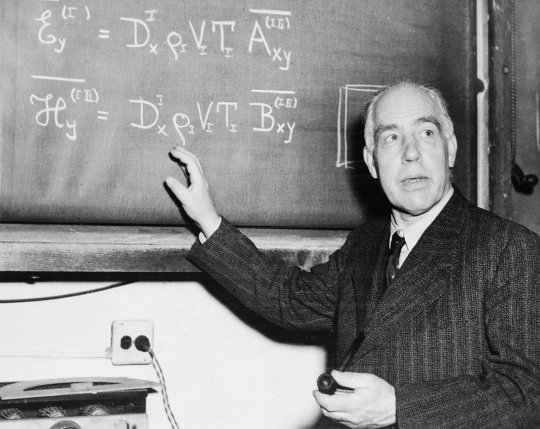
Those who are not shocked when they first come across quantum theory cannot possibly have understood it.
Niels Bohr (1885 - 1962)
253 notes
·
View notes
Text
Christmas Party
Oppenheimer (2023)

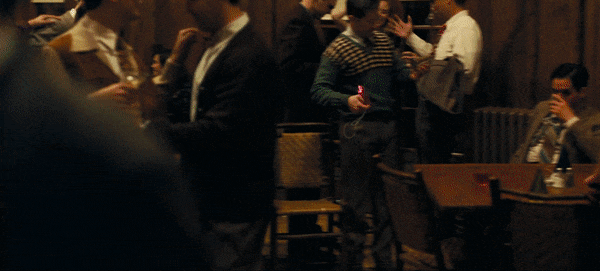
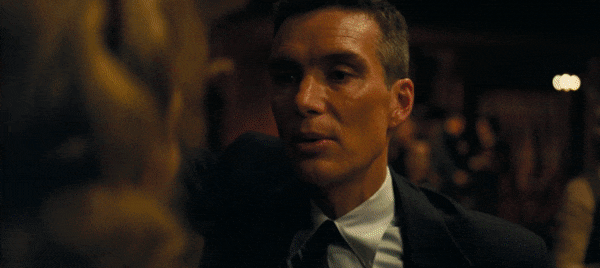

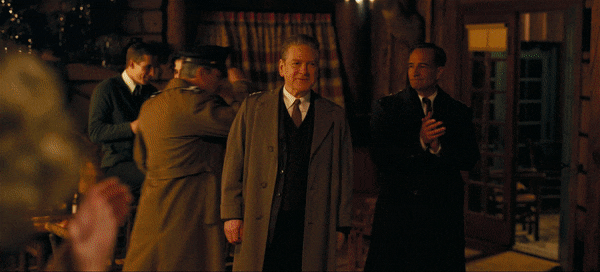
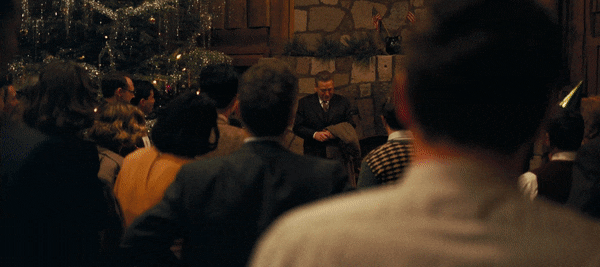

now that Christmas is officially here I can post this!
#oppenheimer 2023#oppenheimer#j Robert oppenheimer#Robert oppenheimer#niels bohr#kenneth branagh#Cillian murphy#Christopher nolan#chris nolan#oppenheimer gifs#cillian murphy gif#gifset
93 notes
·
View notes
Text
oppenheimer's can you hear the music? scene, music by ludwig göransson
#films#oppenheimer#ludwig göransson#christopher nolan#niels bohr#music#raph.txt#did anyone else in the world like this?#i have to be the first
21 notes
·
View notes
Text

#never was Niels Bohring#nerdy memes#memes#nerd humour#chemistry#niels bohr#never gonna give you up#never gonna let you down
42 notes
·
View notes
Text
You watched Christopher Nolan's "Oppenheimer" and now want to learn more about some of the scientists that were involved and the history of the Manhattan Project? Then I recommend "Pandora's Keepers" by Brian VanDeMark. The book takes a closer look at not just J. Robert Oppenheimer, but also Hans Bethe, Niels Bohr, Arthur Compton, Enrico Fermi, Ernest Lawrence, Isidor Isaac Rabi, Leo Szilard and Edward Teller. The book is a history book more so than a science book, most of the scientific explanations mentioned around the making of the bomb, aren't too complex to understand for readers who aren't experts on the matter.
#physics#oppenheimer movie#oppenheimer#nuclear physics#quantum physics#particle physics#hans bethe#niels bohr#edward teller#enrico fermi#leo szilard#ernest lawrence#arthur compton#isidor rabi#pandora's keepers#history#manhattan project
16 notes
·
View notes
Text
“Never express yourself more clearly than you are able to think.”
~Niels Bohr
24 notes
·
View notes
Text

“An expert is a person who has made all the mistakes that can be made in a very narrow field.”
― Niels Bohr
15 notes
·
View notes
Text
by Martin Kramer
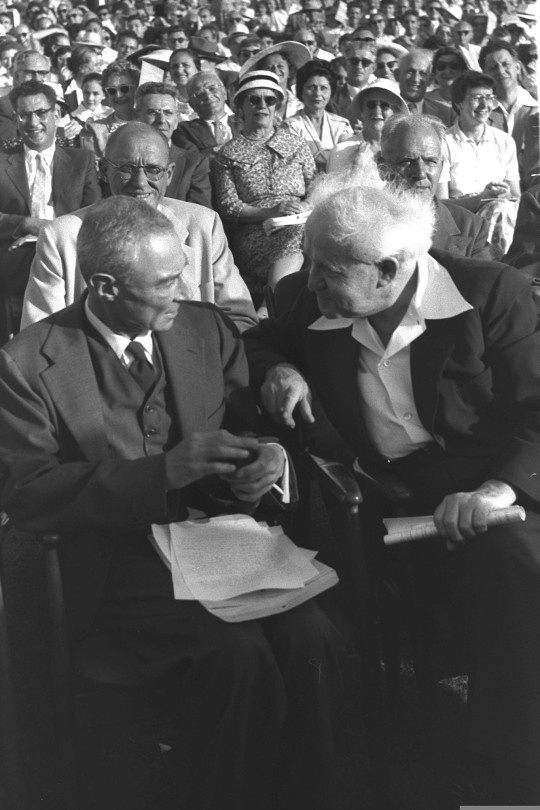
The text may help to explain a remark made by Israeli prime minister David Ben-Gurion to the Israeli cabinet, after he’d met with Oppenheimer at the latter’s request. Ben-Gurion said he “had the impression that some sort of Jewish spark lit up the man.”
That impression may have originated in Oppenheimer’s speech. Ben-Gurion certainly heard it. The prime minister delivered the keynote at the same dedication, and sat with Oppenheimer in the front row. Oppenheimer, in his own speech, made several references to Ben-Gurion’s remarks. (When Oppenheimer said “It is not only the Prime Minister of Israel who has his difficulties,” he was referring to Ben-Gurion’s admission that he didn’t understand much about physics.)
What’s the source for Oppenheimer’s text? Oppenheimer spoke from notes, but he didn’t have a copy of the speech as he delivered it. “I gave my notes on the ceremonial talk to your press officer,” he wrote to Meyer Weisgal, his host, “and have no record at all of what I said.” At Oppenheimer’s request, the Weizmann Institute sent him a tape with the extract of his speech, secured from the Voice of Israel, which had broadcast the proceedings. The following text is a transcription of the delivered speech, from Oppenheimer’s papers. While the Jerusalem Post reported a few portions of his remarks the day after he spoke, the speech is published here in full for the first time.
I’ve appended an extract from another speech that Oppenheimer gave for the Weizmann Institute on December 2, 1958, at its annual fundraiser at the Waldorf-Astoria Hotel in New York. There Oppenheimer reflected on his visit to Israel the previous May. It complements the Rehovot speech.
Some of the persons mentioned by Oppenheimer in the two speeches:
Niels Bohr, Danish physicist and 1922 Nobel laureate. Although baptized a Lutheran, his mother came from a distinguished Jewish family, so he fled Denmark during the Nazi occupation. He later assisted Oppenheimer in the Manhattan Project. Bohr had already lent his prestige to the Weizmann Institute during an earlier visit in 1953, and he also spoke at the 1958 dedication, for which the Institute commissioned his bust.
Meyer Weisgal, Zionist author and fundraiser, and confidant of the late Chaim Weizmann. At this time, he was chairman of the executive council of the Weizmann Institute. He would become the person in Israel closest to Oppenheimer.
Benjamin Bloch, physicist by training, administrator of the Weizmann Institute, and a friend of Bohr and Oppenheimer. (Felix Bloch, the Swiss-American physicist and 1952 Nobel laureate, also attended the 1958 dedication, but Oppenheimer’s reference to “Dr. Bloch” clearly refers to Benjamin.)
Abba Eban, Israeli statesman. In late 1958, he was at the end of his service as Israeli ambassador to the United States and chief delegate to the United Nations, and had been named the next president of the Weizmann Institute.
Ernest (later Lord) Rutherford, New Zealand-British physicist and 1908 Nobel laureate, a friend to Chaim Weizmann in Manchester.
17 notes
·
View notes
Text

Art credited to Deana Key, Art Station
It's a new world. I'll be out there doing what I can but you, you are an American Prometheus. The man who gave them the power to destroy themselves. - Niels Bohr, Oppenheimer (2023, directed by Christopher Nolan)
#oppenheimer#christopher nolan#prometheus#niels bohr#atomic bomb#bombing#nagasaki#hiroshima#j robert oppenheimer
40 notes
·
View notes
Text
#Niels Bohr#Stephen Hawking#Robert Oppenheimer#Wolfgang Pauli#Werner Heisenberg#Richard Fineman#Isaac Newton#Ernest Rutherford#Igor Kurchatov#Paul Dirac#my dead physicist boyfriends
68 notes
·
View notes
Photo

There are some things so serious that you have to laugh at them.
- Niels Bohr
One of the great stories in science is that Carlsberg Brewery offered Niels Bohr a lifetime supply of unlimited beer.
Niels Bohr, a Danish physicist who made fundamental contributions to understanding atomic structure and quantum theory, was awarded the Nobel Prize in Physics in 1922. In honour of his achievements, it was believed that Carlsberg Brewery offered him a gift: a house located next to the brewery.
One of the benefits of this house was a direct pipeline from the brewery to the house, effectively providing Niels Bohr with free and unlimited beer for life. This story reflects both the respect and admiration that Bohr had in his home country and the strong links that often existed between brewers and the communities they served.
The story continues to be popular as it combines two things people often find fascinating: groundbreaking science and beer. Except it’s a bit of an urban legend.
According to Dr. Christian Joas, director of the Niels Bohr Archives and an associate professor in the Department of Scientific Education at the University of Copenhagen, the story has been exaggerated.
Niels Bohr moved into the honorary Carlsberg residence in 1932, which was originally built for Jacob Christian Jacobsen, the founder of the Carlsberg brewery. The house was not given to Bohr, as it is said in the urban legend, but he had the right to use it for life. There is another anecdote about that rent in beer. Namely, after moving into the house near Niels Bohr, a representative of the brewery stopped by and asked him how many beers a day he wanted to be delivered to him. Bohr said: 12, thinking of bottles, but the brewery started delivering 12 crates a day to him and that lasted for a while until the misunderstanding was corrected.
#bohr#niels bohr#quote#physics#physicist#beer#carlsberg#legend#noebl prize#science#scientist#drink#drinking
83 notes
·
View notes
Text
I'm so excited to see Oppenheimer but not because I am a Nolan stan, rather because I will finally be able to see portrayals of legendary physicists I've read about who ushered in the new era of quantum physics. Heisenberg, Bohr, and Feynman??!!!! Plsssss
#werner Heisenberg#Richard feynman#niels bohr#j robert oppenheimer#albert einstein#max born#Wolfgang pauli
24 notes
·
View notes
Text
reviewing chemistry and why bohr is kinda
(the low quality lol)


5 notes
·
View notes
Text
Quel nucleo finale di indeterminazione
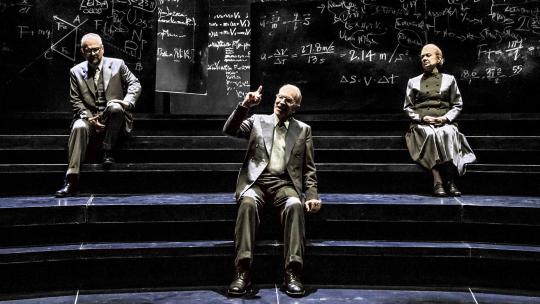
Bohr: Prima che possiamo afferrare qualcosa, la nostra vita è finita.
Heisenberg: Prima che possiamo capire chi e che cosa siamo, siamo finiti e ridotti in polvere.
Bohr: Sepolti da tutta la polvere che abbiamo sollevato.
Margrethe: E prima o poi, verrà il tempo in cui tutti i nostri figli saranno ridotti in polvere; e tutti i figli dei nostri figli.
Bohr: Quando non si prenderanno più decisioni, grandi o piccole che siano. Quando non vi sarà più indeterminazione, perché non vi sarà più conoscenza.
Margrethe: E quando tutti i nostri occhi saranno chiusi, quando anche i fantasmi saranno scomparsi, che cosa rimarrà del nostro beneamato mondo? Del nostro devastato e disonorato e beneamato mondo?
Heisenberg: Ma nel frattempo, in questa preziosissima frazione di tempo, qualcosa c'è. Gli alberi di Faelled Park. Gammertingen e Biberach e Mindelheim. I nostri figli e i figli dei nostri figli. Salvati, forse, da quell'unico breve istante a Copenaghen. Da un qualche evento che non sarà mai esattamente individuato o definito. Da quel nucleo finale di indeterminazione che sta nel cuore delle cose.
—Copenhagen, battute finali dell'opera teatrale di Micheal Frayn, che ricostruisce l'incontro fra il fisico danese Niels Bohr e quello tedesco Werner Heisenberger, avvenuto nel 1941 nella Danimarca occupata dall'esercito tedesco.
Se volete saperne di più sul programma nucleare della Germania nazista, sull'incontro del 1941 che pose fine all'amicizia fra Bohr e Heisenberg e sui dilemmi etici che agitarono le menti di due premi Nobel, fatevi un favore: guardate quest'opera teatrale (link in fondo).
L'argomento, di per sé interessante, lo è ancora di più perché se ne parla molto poco. Il recente film di Christopher Nolan "Oppenheimer" narra ovviamente della ricerca per la creazione della bomba atomica nel versante statunitense, con un singolo breve accenno a Heisenberg. Ma mi sono sempre chiesto cosa fosse successo nella Germania nazista, che cosa impedì di arrivare all'obiettivo, pur partendo in netto anticipo.
Questo spettacolo non solo getta luce su tale quesito, ma mostra un lato fortemente umano della Scienza, del quale troppo spesso dimentichiamo l'esistenza ma che ne influenza enormemente il progresso e la direzione del progresso.
Spettacolo teatrale regia Mauro Avogadro con Massimo Popolizio, Umberto Orsini, Giuliana Lojodice: video su Rai Play
Copione tradotto in italiano da Maria Teresa Petruzzi e Filippo Ottoni: PDF.
#copenhagen#spettacolo teatrale#michael frayn#niels bohr#werner heisenberg#christopher nolan#oppenheimer
10 notes
·
View notes
